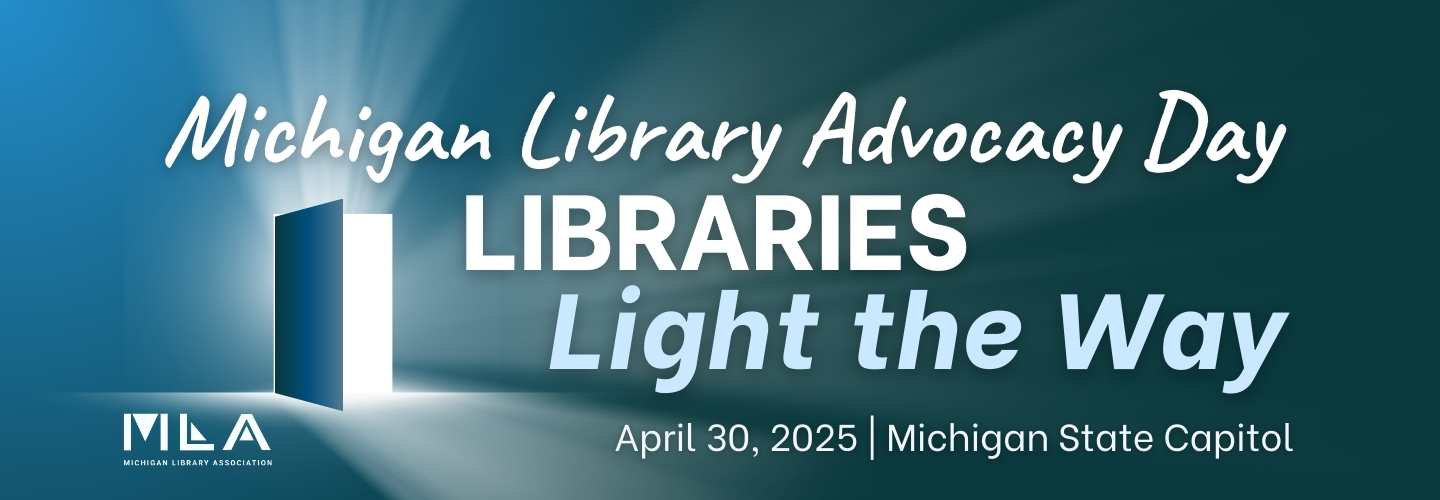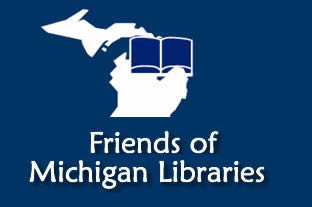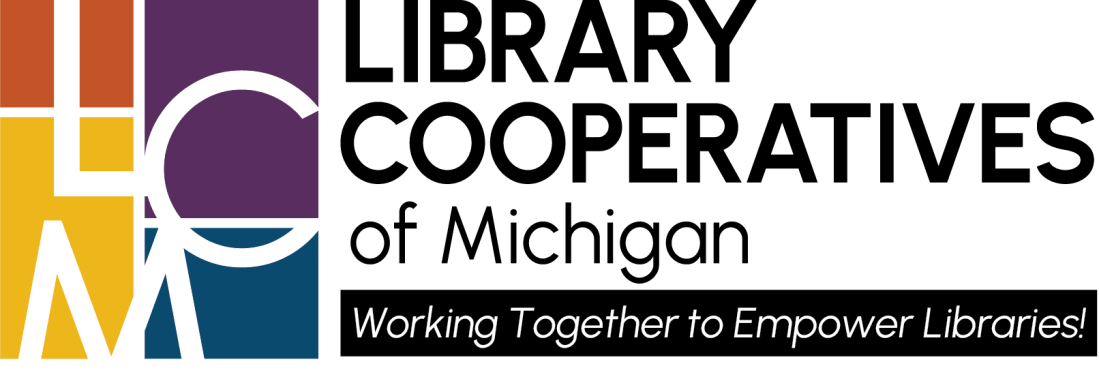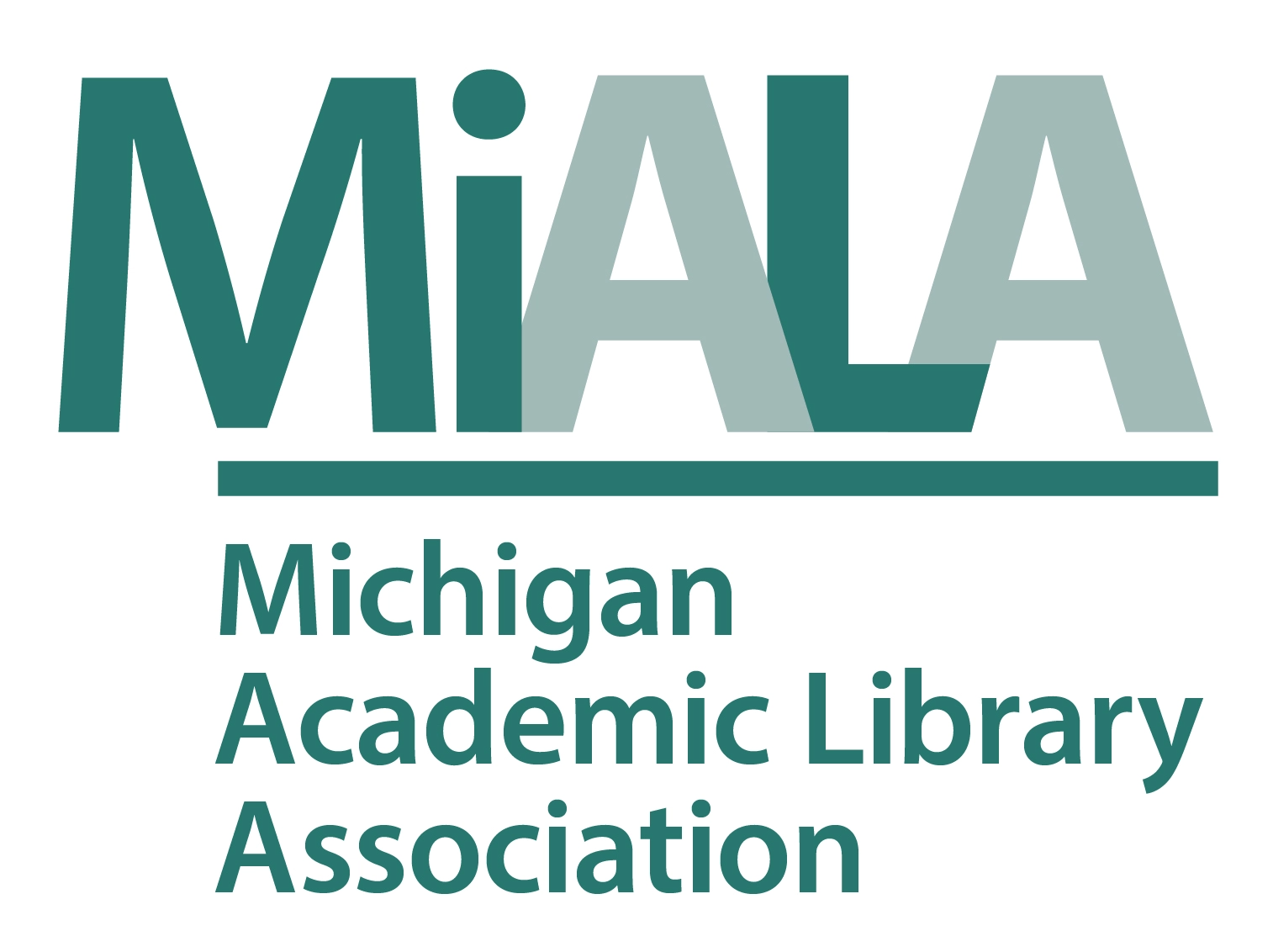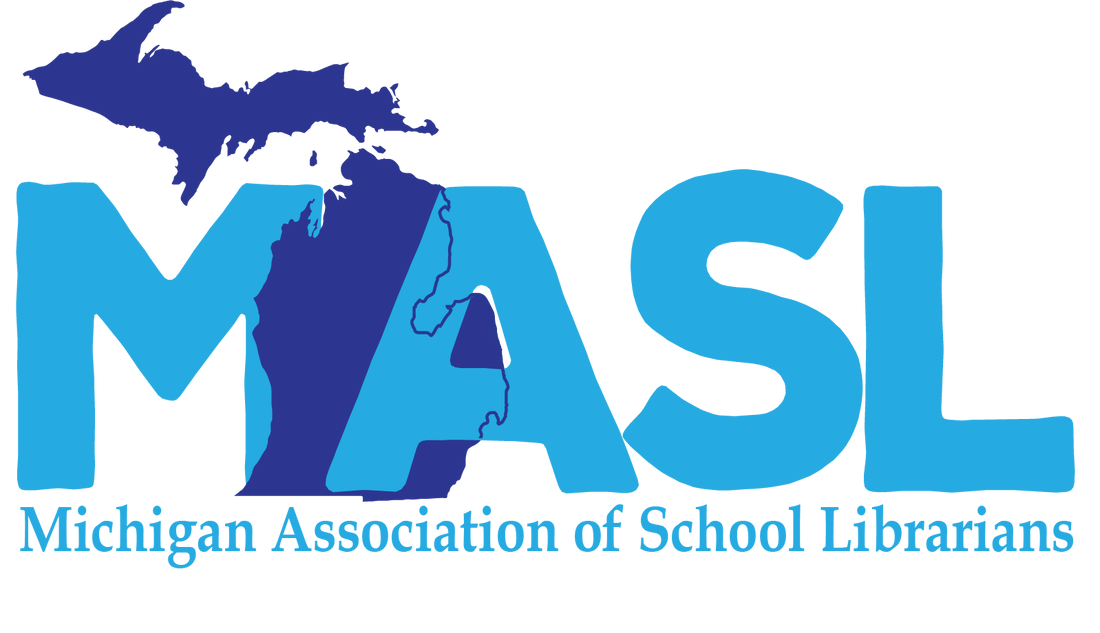- About
- Membership
- Education & Events
- Event Calendar
- Annual Conference
- Spring Institute for Youth Services
- Think Space
- Surviving and Thriving as a Public Library Director
- Leadership Academy
- Michigan Library Advocacy Day
- Youth Summit for the Right to Read
- Advocacy Hour
- MLA Connect
- MLA Connect On Demand
- Call for Proposals
- Vendor and Sponsor Opportunities
- Future Event Dates and Locations
- Programs & Services
- Advocacy
- News
- Job Board
|
Michigan Library Advocacy Day Home | Advocacy Day 2025 Home | Schedule | Speakers | Talking Points and Resources Michigan Library Advocacy Day 2025 Talking PointsMichigan eLibrary (MeL): A Vital Resource at Risk
Download this fact sheet (Pdf)Why Additional State Funding Is Needed NowAbout the Michigan eLibrary (MeL)The Michigan eLibrary (MeL) is the state’s free digital library, administered by the Library of Michigan, an agency of the Michigan Department of Education, in partnership with libraries statewide. MeL includes two key services:
MeL Federal Funding UncertaintyMeL is funded by both state appropriations and federal funds through the Institute of Museum and Library Services (IMLS). In early March, a federal executive order directed IMLS to drastically reduce operations and on March 31, all of IMLS staff were placed on administrative leave. This effectively cuts more than $4.8M in IMLS federal funds to Michigan, putting MeL at risk of severe service disruptions. ASK of Michigan Legislators: Fund the Library of Michigan’s interlibrary loan program and other statewide initiatives at $6.74 million in FY 2026, increasing the state’s investment by $5 million. By the NumbersMeL saves schools, libraries, and residents millions by providing shared access to 34 million resources, career certifications, and academic databases—services that would cost 5–10x more if purchased independently. By leveraging bulk purchasing power and statewide partnerships, MeL provides these resources at fractions of individual costs. For less than $0.77 per resident annually, MeL ensures all Michiganders—regardless of zip code or income—have 365/24/7 access to education, jobs, and opportunity. Michigan Residents Rely on MeLResource-sharing among libraries across the state is the current way libraries are surviving deep cuts to their budgets and still providing their faculty and students with the research materials they need. MeLCat gives Calvin University and other colleges and universities the opportunity to be good neighbors to one another and at the same time save money. If we believe that brainpower and ingenuity play a critical part in solving the state’s complex problems, we will recognize that MeLCat is a lifeline for all of us. Discovering Melcat was for me the equivalent of discovering a secret door in my bookcase that swings open and allows me entry into a world of authors and subjects that would not otherwise be available to me. Melcat has let me explore many rabbit holes at no cost and gifted me with countless hours of new knowledge and enjoyment. Sodus, as a small public library, relies heavily on Melcat since we don’t have a lot of our own catalog. The access to a broader range of materials through Melcat enriches our library services and provides our patrons with more resources than we could offer alone. It's heartwarming to see our community thrive with the help of this wonderful network! As a first grade teacher at a Tribal School, I find the services of MeLCat to be extremely valuable. I have borrowed books from all over the area; from picture books for read alouds to help with my students' reading comprehension, to early reader biographies and science books for our research writing, to books that help us know how to be Socially and Emotionally safe. The wide range of books offered through this service helps me be a better teacher so our children can have a bright future. I am a children's librarian and MeLCat is invaluable to the work I do. MeLCat is one of the best tools in my toolbox. It allows me to share so many more stories with the children that come visit our library. Storytelling to children is vitally important it promotes creative thinking, language development, emotional intelligence, and can help teach moral values. As a library worker in a remote area, I see firsthand how MeLCat fills critical gaps in our library’s collection. Our limited budget and space make it difficult to stock every book or resource our patrons need, and interlibrary transfers aren’t always as fast as we’d like. MeLCat has been a lifeline, allowing our patrons to access a much broader range of materials quickly and efficiently. A big part of my current project focuses on promoting college readiness for local teens. Test preparation materials are expensive and can take up valuable shelf space, but MeLCat provides access to a wide range of these resources digitally—making it possible for our students to prepare for exams without added financial strain. Through the years, MEL has helped me access books statewide. Most recently, as an online graduate student, MEL's interlibrary loan system helped me save $600 in one semester by allowing me to use good sources to write a final exam paper. I am so happy that state libraries have this service available to their residents. As an individual rural citizen and taxpayer, I participate in a foreign policy discussion program at the Petoskey District Library called Great Decisions. The background reading for this group often refers to articles of periodicals that are no longer saved by libraries for more than a year or two.....they are digitized and available on Michigan eLibrary (MEL). The ability of rural citizens to have access to digital media is essential to move our democracy into the future. Michigan Students and Educators Rely on MeLEducators and students across the state of Michigan utilize the Michigan eLibrary, MeL, for essential resources such as tools for early literacy, reliable research databases, career exploration and test preparation. These resources are critical for helping students understand the value of research, appreciate the importance of validating sources, and make connections between different topics, all of which are necessary for building information literacy skills. In Grand Haven, PebbleGo - an early literacy resource provided by MeL - is such a vital tool used by all of our elementary schools. This irreplaceable resource presents information in a student-friendly manner to support students in building their literacy skills. Our budget would not allow the purchase of this resource, so accessing it through MeL is crucial. As a gifted coordinator, the Michigan Electronic Library (MeL) has been an incredible resource in supporting gifted students, offering a rich collection of tools and materials that go far beyond our standard curriculum and resources available in our district. One of its most valuable features is the ability to help my students discover books that match their unique interests and learning needs—whether they're passionate about robotics, mythology, dinosaurs, ancient times, or beyond. More often than not, we don't always have access to the books our students are interested in at their reading level. MeL allows our students to explore their interests deeply and independently, fostering curiosity and a genuine love for learning. The MEL databases are fully integrated into the curriculum at Rockford High School. Tenth Grade AP Seminar English classes use the databases the entire school year. The AP Seminar model involves every sophomore at RHS. It is the core curriculum model for English at that level. As for college bound seniors, over 80% of RHS graduates are college bound, they are instructed in the use of databases as an underpinning of the research and writing skills needed to succeed at the next level. There is no better resource available to high school students in the state of Michigan for access to the valid, vetted and verified information sources needed for quality academic research than the MEL databases. The loss of the MEL databases will do irreparable harm to learning for all students at Rockford High School in the near and long term. As a school librarian with a limited annual budget, MeL is vital to our students and teachers. I can't afford to purchase access to even one database subscription for our school, but with MeL, our students and teachers have access to a wide variety of high quality, peer reviewed, reliable research sources for free. Losing access to the databases, and other resources, provided by MeL will be a blow to our ability to teach important research skills to our students. It's not just the databases that will be a loss for schools. Not even five minutes ago, I directed an AP French student to the free practice exams provided on the MeL site through the Learning Express Library. She was excited to find a free resource to help her prepare for her upcoming exam. MeL has so many amazing resources for our schools and communities, it would be a major blow to the state of Michigan to lose access to these. MeL databases are an incredible resource. Due to many years of smaller book budgets, MEL has provided me with Britannica online for free! This database for years has helped me to enable students to become their own researchers and to find truthful, verifiable, sources of information. The citation generator it has embedded has helped thousands of students over my career to complete their work and have higher achievement specifically in the areas of science, social studies, and english language arts. As a high school librarian, I have come to rely on the EBSCO databases, EBSCO eBooks, Britannica, and Opposing Viewpoints. These databases are beyond what we can typically afford at a public Michigan high school. We are one of the top high schools in the state, and our students do a lot of research for the International Baccalaureate program. In order to compete with other students on a global scale, our students need top notch research databases. These paid resources are far more comprehensive and academic than what the free internet can provide. Accessing high-quality, peer-reviewed articles and comprehensive eBooks has not only enriched our students’ understanding but has also enhanced their critical thinking skills. The ability to explore multiple viewpoints on complex topics empowers our students to engage in informed discussions, fostering a deeper appreciation for diverse perspectives. Our school can't afford library databases so when we teach our research units in various grades, we show students how to use the library databases from MeL. MeL allows students to find reliable information that is easily cited. Many MeL resources have built-in read-aloud and translation tools making them accessible to a variety of students. By teaching students how to access MeL which they can access as long as they live in Michigan, we are encouraging them to be lifelong learners. They are able to use MeL beyond their school assignments for reliable information. In addition, our English Language Learner population relies on MeL to find resources in their home language and on MeLCat to borrow books in other languages. As a certified school librarian I rely heavily on the MeL resources. I teach classes all year long that use the MeL databases. I teach all of our 9th grade students how to do Boolean searches, use search filters, and download full-text articles from Ebsco Masterfile. They use Gale Opposing Viewpoints in many classes as they do persuasive research projects, and they utilize NoveList to help look for their next great read. Students appreciate the practice tests and career readiness tools available and teachers use various databases to help find resources for their lessons. I'm not sure how we could continue to follow our curriculum without access to the MeL resources. ResourcesState of Michigan Budget Cycle Infographic (jpeg) Michigan State Budget Cycle (pdf) The Legislative Process (pdf) |

